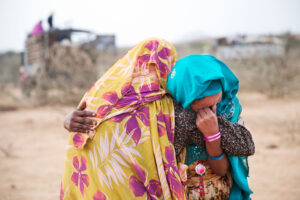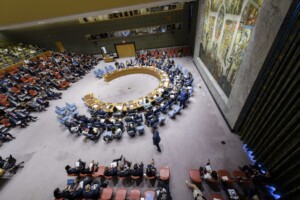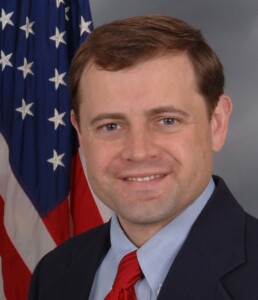UNDP head: ‘2020 is once in a lifetime opportunity to support Sudan’
The international community must immediately boost its support to Sudan to accelerate its transition to civilian rule, allowing it to sustain peace and accelerate much-need development, Achim Steiner, head of the United Nations Development Programme (UNDP) has said as he concluded his three-day visit to – first ever by a UNDP Administrator.
 Achim Steiner, head of the United Nations Development Programme (File photo: UNDP/Freya Morales)
Achim Steiner, head of the United Nations Development Programme (File photo: UNDP/Freya Morales)
The international community must immediately boost its support to Sudan to accelerate its transition to civilian rule, allowing it to sustain peace and accelerate much-need development, Achim Steiner, head of the United Nations Development Programme (UNDP) has said as he concluded his three-day visit to Sudan – the first ever by a UNDP Administrator.
“Having met with communities and leaders from across society, I believe that the international community now has a once in a lifetime opportunity to foster lasting peace and democracy which will set the country on a positive development trajectory — including a much stronger economy,” said Steiner. “This means bolstering support to Sudan’s Transitional Government so that it can deliver on the needs and aspirations of its people.”
Steiner’s visit coincides with a historic time when national institutions, including the recently appointed government, manage a complex transition which aims to usher Sudan into civilian, democratic rule by the end of 2022. It also comes in the wake of a crucial Donor Roundtable held in London earlier this month at which donors pledged strong support to address Sudan’s immediate humanitarian needs — aid which remains a critical focus for the United Nations (UN) and wider international community. The country is also currently contending with spiraling economic challenges including an official unemployment rate of 21 per cent, according to the IMF.
‘I believe that the international community now has a once in a lifetime opportunity to foster lasting peace and democracy which will set the country on a positive development trajectory’
“Bringing peace to lingering conflicts across Sudan and solidifying chances for recovery, as well as drafting a new constitution and holding parliamentary elections by 2022 are high on the list of priorities — but the transition is not only about how Sudan is governed,” said Steiner. “It is also about reviving the economy which means setting the conditions to create jobs and giving hope for the future – especially to women and youth who were at the forefront of protests.”
In meetings with senior leadership in the country, Steiner outlined how UNDP will continue to provide tailored support to critical state institutions to strengthen their ability to manage the transition — and to enable them to make inroad on a range of critical issues now facing the country. “Under the leadership of the UN Secretary-General and his Special Advisor on Sudan, UNDP will focus on helping the country tackle political and economic challenges in tandem,” emphasized Steiner. “With just 32 months left, Sudan’s transition is on a tight schedule, however UNDP’s expertise and longstanding partnerships in the country will allow us to provide the level of support that is now needed.”
In particular, UNDP will scale-up its existing support on strengthening critical governance functions — a priority in the transitional process. This will help the state facilitate the enjoyment of basic human rights, apply the rule of law and deliver justice. UNDP will also expand its work on community development and the strengthening of state- and local-level institutions so that communities can enjoy the tangible dividends of peace. UNDP also remains committed to helping woman and youth carve a space for more meaningful political and social participation.
With its partners, UNDP will offer technical expertise to the office of the Prime Minister and key government institutions to strengthen their ability to deliver on the ambitious reform agenda. This means supporting regulatory reform to enable economic growth as well as advancing measures to enable women and youth to benefit from the formal financial system and the emerging digital economy.
“Growing a better future is hard when 70 per cent of your classmates cannot find jobs after graduation, but I was humbled by the entrepreneurship and creativity that I witnessed first-hand in my meetings with youth and women in Khartoum and Darfur,” said Steiner. “The people of Sudan are its future and they need our support to unleash their full capability”.
Steiner also met with representatives of some of Sudan’s main international development partners, including sister UN agencies. He explored opportunities and challenges for the international community to make resources available to help stabilize Sudan’s economy, enable investments and undertake measures to expand inclusive and sustainable economic opportunity, in line with the programme of the Transitional Government.
UNDP will also build upon its pioneering work with the ministries of Agriculture and Energy on solar powered irrigation to boost productivity and lessen dependence on fossil fuels in agriculture — a critical sector that contributes 30 per cent of Sudan’s GDP and employs 80 per cent of the population. “In such a vast country, where the power infrastructure requires a major overhaul, immediate investment in off-grid solar-powered electricity is critical to drive the economy forward,” said Steiner.
In Darfur, Steiner inaugurated the regional office of the National Human Rights Commission together with United Nations Assistance Mission in Darfur (UNAMID). He also met with representatives from various communities participating in UNDP’s livelihoods, stabilization and reconciliation programmes in the region. In 2019 alone, UNDP supported more than 500 initiatives in Darfur, which reached over 500,000 people, with women who represented 52 per cent of the beneficiaries.
“After my visit, it is clearer than ever that we must seize this narrow window of opportunity to support the people of Sudan as they lay the foundations for a better future — we must not pass up this unique chance,” said Steiner.
Radio Dabanga’s editorial independence means that we can continue to provide factual updates about political developments to Sudanese and international actors, educate people about how to avoid outbreaks of infectious diseases, and provide a window to the world for those in all corners of Sudan. Support Radio Dabanga for as little as €2.50, the equivalent of a cup of coffee.










 and then
and then